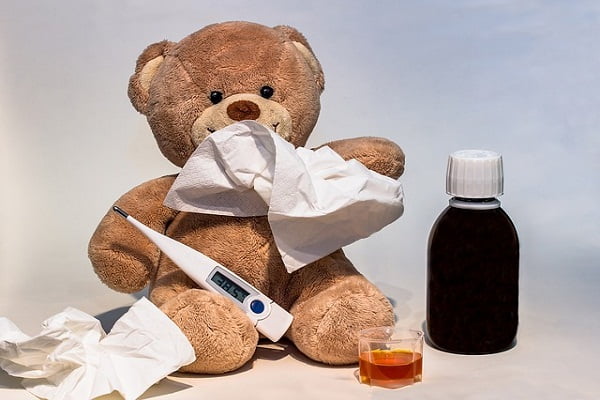Croup Cough Fever: What to Do If Your Kid Gets Fever in Croup?
- Updated on: Jul 10, 2024
- 2 min Read
- Published on Oct 3, 2019


An infection in the upper airway of the respiratory system leads to a condition known as Croup Cough. The area around the vocal cords and windpipe is swollen due to which it leads to cough and other such symptoms. This disease usually occurs in children of age below 5 years.
Does croup fever occur in croup cough disease? Is there always a fever with croup?
During Croup, a bacterial or viral infection occurs in the upper respiratory tract due to which the body temperature rises. The croup fever would range from 100-103.F. When the child experiences fever, the chances of spreading the infection would be high.
In the beginning, a child may have cold symptoms such as a stuffy or runny nose and fever. But, having fever is not necessary in Croup. Some kids don’t have any fever at all in croup.
As the upper airways become irritated and inflamed, the voice may become hoarse and a child develops the barking cough. The symptoms worsen in the night usually.
See also: Croup Cough: Causes, Symptoms, Complications, Diagnosis, Treatment
See also: Albuterol For Croup Cough: How Does Albuterol Work?
What medication should be provided in croup fever?
Specific non-steriodal anti-inflammatory drugs (NSAIDs) such as Acetaminophen or Ibuprofen can be provided to the child, which could reduce the fever and also decrease pain in the throat.
Do steroids help cure croup fever?
Steriods are recommended for croup cough but these do not work against fever. These steroids work against other symptoms such as cough and breathlessness experienced by the child.
How long does the fever last in croup disease?
The child may suffer from a mild fever for about 3 days. Other symptoms of croup cough disease though may last longer for about a week, depending upon the severity of infection.
More: Croup Cough Sound (Barking Cough)
More: Is Croup Contagious? How Long Does Croup Last In Children And Adults?
Is croup fever a major cause to worry?
Fever during croup is a common symptom which can be easily treated by some antipyretic drug. But if the fever reaches 104.F or if it lasts for more than 3 days then you should immediately consult a doctor or visit a hospital. It may then be a sign of worry.
If your child has croup, the symptoms are likely to be worse at night and better during the day. Sometimes, symptoms can become better when your child is exposed to cool air.
Most cases of croup are mild and go away on their own when treated with home remedies, still some children may develop more severe symptoms and need immediate medical attention.
Such more severe symptoms are:
- Difficulty in breathing or stridor when your child is sleeping
- Bluish discoloration of fingernails or around a child’s mouth
- Lethargy, laziness
- Difficulties in swallowing
Contact a child doctor if you notice any of these symptoms in your child. The earlier they are treated, the better it is.











